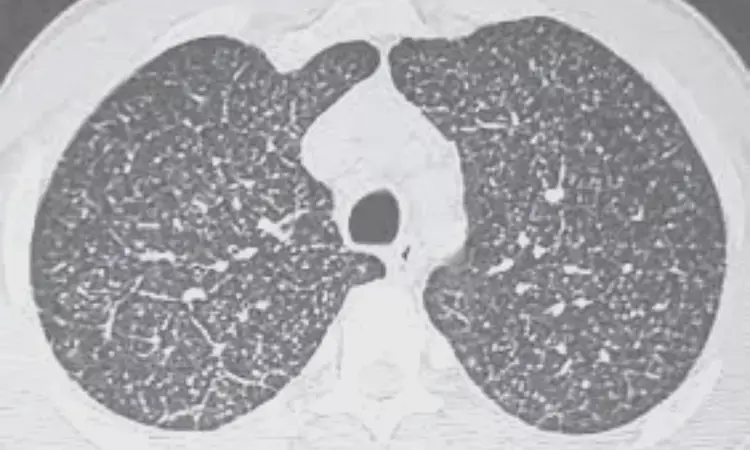- Home
- Medical news & Guidelines
- Anesthesiology
- Cardiology and CTVS
- Critical Care
- Dentistry
- Dermatology
- Diabetes and Endocrinology
- ENT
- Gastroenterology
- Medicine
- Nephrology
- Neurology
- Obstretics-Gynaecology
- Oncology
- Ophthalmology
- Orthopaedics
- Pediatrics-Neonatology
- Psychiatry
- Pulmonology
- Radiology
- Surgery
- Urology
- Laboratory Medicine
- Diet
- Nursing
- Paramedical
- Physiotherapy
- Health news
- Fact Check
- Bone Health Fact Check
- Brain Health Fact Check
- Cancer Related Fact Check
- Child Care Fact Check
- Dental and oral health fact check
- Diabetes and metabolic health fact check
- Diet and Nutrition Fact Check
- Eye and ENT Care Fact Check
- Fitness fact check
- Gut health fact check
- Heart health fact check
- Kidney health fact check
- Medical education fact check
- Men's health fact check
- Respiratory fact check
- Skin and hair care fact check
- Vaccine and Immunization fact check
- Women's health fact check
- AYUSH
- State News
- Andaman and Nicobar Islands
- Andhra Pradesh
- Arunachal Pradesh
- Assam
- Bihar
- Chandigarh
- Chattisgarh
- Dadra and Nagar Haveli
- Daman and Diu
- Delhi
- Goa
- Gujarat
- Haryana
- Himachal Pradesh
- Jammu & Kashmir
- Jharkhand
- Karnataka
- Kerala
- Ladakh
- Lakshadweep
- Madhya Pradesh
- Maharashtra
- Manipur
- Meghalaya
- Mizoram
- Nagaland
- Odisha
- Puducherry
- Punjab
- Rajasthan
- Sikkim
- Tamil Nadu
- Telangana
- Tripura
- Uttar Pradesh
- Uttrakhand
- West Bengal
- Medical Education
- Industry
SSc-ILD Patients Treated with Nintedanib at high risk of weight loss and malnutrition

In a recent study published in the Arthritis Care & Research found the impact of nintedanib treatment on adverse events (AEs) and the risk of malnutrition in patients with systemic sclerosis–associated interstitial lung disease (SSc–ILD) based on their baseline body mass index (BMI).
The study investigated patients with SSc–ILD randomized to receive either nintedanib or a placebo over a span of 52 weeks, scrutinized AEs in two subgroups: those with a baseline BMI ≤20 kg/m² and those with a baseline BMI >20 kg/m². Additionally, the risk of malnutrition was assessed using a modified version of the Malnutrition Universal Screening Tool (MUST).
Remarkably, the analysis unveiled that the AE profile of nintedanib was comparable in both subgroups, regardless of baseline BMI. In the subgroup with a baseline BMI ≤20 kg/m², AEs resulted in treatment discontinuation for 16.7% of the nintedanib group, as opposed to 13.5% in the placebo group. In the subgroup with a baseline BMI >20 kg/m², these figures stood at 15.9% for nintedanib and 8.0% for placebo.
Utilizing the modified MUST, the study revealed that the majority of patients in both the nintedanib and placebo groups maintained a low risk of malnutrition throughout the 52-week period, with 74.0% and 78.1% respectively. However, a noteworthy finding was that in the nintedanib group, 4.5% of patients classified as low risk at baseline were categorized as high risk by their last assessment, whereas this percentage was only 1.0% in the placebo group.
In light of these findings, the SENSCIS trial underscores the importance of managing disease manifestations and AEs that could be associated with weight loss in SSc–ILD patients. While the majority of patients remained at a low risk of malnutrition over the course of the study, the proportion classified as high risk was notably higher among those receiving nintedanib compared to the placebo group. This revelation emphasizes the need for vigilant monitoring and proactive intervention to mitigate the risk of malnutrition in patients with SSc–ILD, especially those undergoing nintedanib treatment.
Source:
Volkmann, E. R., McMahan, Z. H., Smith, V., Jouneau, S., Miede, C., Alves, M., & Herrick, A. L. (2023). Risk of Malnutrition in Patients With Systemic Sclerosis‐Associated Interstitial Lung Disease Treated With Nintedanib in the Randomized, Placebo‐Controlled SENSCIS Trial. In Arthritis Care & Research. Wiley. https://doi.org/10.1002/acr.25176
Neuroscience Masters graduate
Jacinthlyn Sylvia, a Neuroscience Master's graduate from Chennai has worked extensively in deciphering the neurobiology of cognition and motor control in aging. She also has spread-out exposure to Neurosurgery from her Bachelor’s. She is currently involved in active Neuro-Oncology research. She is an upcoming neuroscientist with a fiery passion for writing. Her news cover at Medical Dialogues feature recent discoveries and updates from the healthcare and biomedical research fields. She can be reached at editorial@medicaldialogues.in
Dr Kamal Kant Kohli-MBBS, DTCD- a chest specialist with more than 30 years of practice and a flair for writing clinical articles, Dr Kamal Kant Kohli joined Medical Dialogues as a Chief Editor of Medical News. Besides writing articles, as an editor, he proofreads and verifies all the medical content published on Medical Dialogues including those coming from journals, studies,medical conferences,guidelines etc. Email: drkohli@medicaldialogues.in. Contact no. 011-43720751


